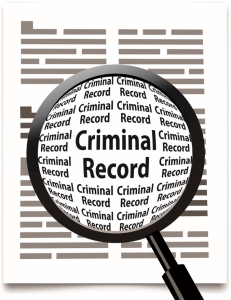 In every state, it is illegal to drive under the influence of drugs or alcohol. However, the penalty varies from state to state. If a police officer suspects that you are driving under the influence, you may be stopped and asked to submit to a breathalyzer test to measure your blood alcohol content.
In every state, it is illegal to drive under the influence of drugs or alcohol. However, the penalty varies from state to state. If a police officer suspects that you are driving under the influence, you may be stopped and asked to submit to a breathalyzer test to measure your blood alcohol content.
The charges you face will often depend upon your age and blood alcohol level. For example, any driver with a blood alcohol level higher than 0.08% (as well as some who blow lower or don’t blow at all) will likely be charged with a DUI. But Illinois has a Zero Tolerance Law for drivers under the age of 21 as well. Even trace amounts of alcohol may lead to what is called a Zero Tolerance Suspension in Illinois. An underage driver may also suffer other negative effects if alcohol is detected during testing.
Commercial drivers who have been arrested face automatic suspension of the CDL component of their driver’s license when blood alcohol levels of 0.04% or greater are present if caught driving in a Commercial Motor Vehicle (CMV). In Illinois, the “legal alcohol limit” for all drivers is 0.08% (which doesn’t really mean, as many people believe, that you lose if you hit .08 and you win if you’re under .08. See our article here that discusses DUI legal limits). Yet even with a level as low as .01%, if there is additional evidence that the driver was intoxicated, they can still be arrested and may potentially be convicted.
Many factors affect blood alcohol levels. For example, a person’s body weight, age, tolerance to alcohol, and the type of food consumed with alcohol can all affect the blood alcohol level.
Differences Between a Criminal Record and a Driving Record
If you are arrested, charged, and you later plead guilty and/or are convicted of a DUI, there are two different notations on your “record” that will be involved. In Illinois, a DUI will appear on both your criminal record and on your driving record (abstract).
Driving Record
In Illinois, DUI is not a points-based offense. Instead, it is an immediate action offense. This means that your driver’s license is subject to an immediate revocation if convicted. It is also subject to an administrative suspension 46 days after arrest if the driver either refused to take chemical testing or testing disclosed results in excess of allowable limits, and this is called a Statutory Summary Suspension.
A Statutory Summary Suspension is different than the actual DUI charge and it occurs even while the criminal process moves forward. A first-time arrest may result in an administrative suspension for six months or one year in Illinois depending on whether chemical testing was undertaken or refused. If you are arrested again within 5 years of the first offense, your driver’s license may be suspended for 3 years.
Suspension of your license does not depend on whether you’re convicted of the crime of DUI and does not come off of your driver’s record even if you are later found Not Guilty of the actual DUI. It’s often difficult for people to understand the difference between the Statutory Summary Suspension and the DUI itself, but our article located here can help you understand how they differ.
Criminal Record
If you are arrested and charged with a DUI, this information remains on your criminal record (also known as a “rap sheet”) after you’ve been fingerprinted. In Illinois, these records can be sealed or removed only if you are not convicted of the charge.
However, if you plead guilty or are convicted of a DUI, the offense stays on your criminal record forever. In other states, there is a roll-off period. In other words, after a certain number of years, the charge and conviction no longer appear on your criminal record, and it is as if the charge never occurred. This is called the “lookback period.” But in Illinois, there is no lookback period, and the criminal charge remains on your criminal record for life, regardless of whether you received supervision, probation or conditional discharge.
Can a DUI Be Expunged?
 In Illinois, a DUI cannot be expunged if it resulted in a plea that was entered or if a finding of guilty occurred. Expungement is a legal process in which a charge can basically be erased or sealed. Under the law, the process removes certain criminal notations from your criminal record, or it seals it at the state level. It will appear as if the incident never occurred, depending on where the viewer looks. An expungement does not erase all criminal history data from everywhere on the internet though.
In Illinois, a DUI cannot be expunged if it resulted in a plea that was entered or if a finding of guilty occurred. Expungement is a legal process in which a charge can basically be erased or sealed. Under the law, the process removes certain criminal notations from your criminal record, or it seals it at the state level. It will appear as if the incident never occurred, depending on where the viewer looks. An expungement does not erase all criminal history data from everywhere on the internet though.
To get the criminal DUI conviction completely off of your record by expungement, the charges must actually be dismissed, you must win your trial, or you must seek and be granted a pardon by the governor. In order to receive a pardon in Illinois, you must apply for one and seek to be pardoned of your conviction. These pardons are not granted easily.
To obtain a pardon, you must file a petition and may need to attend a hearing where your Chicago lawyer can represent your interests. If the pardon hearing is successful, then the Illinois governor can pardon your DUI conviction. This erases it from your criminal record, and it will be as if it never happened.
The best way to defend yourself against a DUI is to not drink and drive of course. Keeping a DUI off your criminal record will make it easier to get a job, rent an apartment, and get a loan. However, if you have been arrested for a DUI, taking a proactive approach can make a dramatic difference for your future. Do not assume that you are without options after a drunk driving arrest. In Illinois, you can fight the charges at the administrative level and at the criminal level.
Call Mitchell S. Sexner & Associates LLC Today
If you were arrested or charged with a DUI, take a proactive approach to protect your record. It is crucial to work with an experienced and successful Chicago DUI legal team who will fight aggressively and tenaciously to protect your record.
The Chicago criminal defense attorneys of Mitchell S. Sexner & Associates LLC understand that a conviction on your record can have life-long consequences. In the last 30 years, we have successfully represented over 20,000 clients facing criminal charges. We understand that you have a unique story to tell and we are committed to representing you in the best manner possible.
Call our offices today at (312) 644-0444 or contact us online for a free case evaluation.
